ΕΙΔΙΚΑ ΠΡΟΓΡΑΜΜΑΤΑ
ΜΗΧΑΝΙΚΩΝ, ΠΙΛΟΤΩΝ, ΠΛΗΡΩΜΑΤΩΝ
Η AVENG προσφέρει μία εκτεταμένη σειρά πακέτων εκπαιδευτικών προγραμμάτων, στα πρότυπα των προδιαγραφών της EASA, αλλά και μεμονωμένα προγράμματα σε επαγγελματίες και επιχειρήσεις, είτε βασικών γνώσεων, είτε εξειδικευμένα.
Επαγγελματικές δεξιότητες εκπαιδευτών, ασφάλεια δεξαμενών καυσίμων, εκπαίδευση πυρκαγιάς και καπνού, διαχείριση συστημάτων ασφαλείας, μαθήματα αγγλικών για μηχανικούς και πληρώματα αεροσκαφών είναι μερικά από τα ειδικά προγράμματα που αναβαθμίζουν τις υπηρεσίες των μηχανικών αεροσκαφών αλλά και του προσωπικού οργανισμών και επιχειρήσεων.
Μετά την ολοκλήρωση των μαθημάτων παρέχονται όλες οι εγκεκριμένες πιστοποιήσεις.
QUALITY MANAGEMENT
SYSTEMS & PRINCIPLES
FOR AVIATION
Quality Management Systems & Principles for Aviation
Objective
Establish standardized QMS procedures and continuous improvement techniques in Aviation industry. Ensure that participants are adequately trained in order to establish, implement, and continuously improve the Quality System in accordance with the international aviation laws and regulations, and standards, and gain the knowledge to recognize potentially risky situations that may affect the organization.
Target Group
This training course applies to all types of QMS of any known standard.

ΧΑΡΑΚΤΗΡΙΣΤΙΚΑ ΜΑΘΗΜΑΤΟΣ
| Διάρκεια |
3 ημέρες x 8 ώρες |
| Γλώσσα | Αγγλικά |
| Εξετάσεις | Ναι |
ΩΡΕΣ ΜΑΘΗΜΑΤΩΝ
Μετά από συνεννόηση
Προαπαιτούμενα: Οι συμμετέχοντες πρέπει να μπορούν να διαβάσουν και να κατανοήσουν αγγλικό κείμενο.
QUALITY AUDITING PRINCIPLES AND TECHNIQUES FOR AVIATION
Quality Auditing Principles and Techniques for Aviation
Objective
Establish standardized Quality Audit Procedures and Techniques in Aviation industry activities. By conducting the exercises it is ensured that all participants are adequately trained to accomplish the audit in accordance with the international aviation laws, regulations, audit standards, techniques and have the knowledge to recognize and handle potentially unsafe or non-conforming situations that may arise during the audit and affect the organization.
Target Group
This training course applies to all types of audits of any known standard.
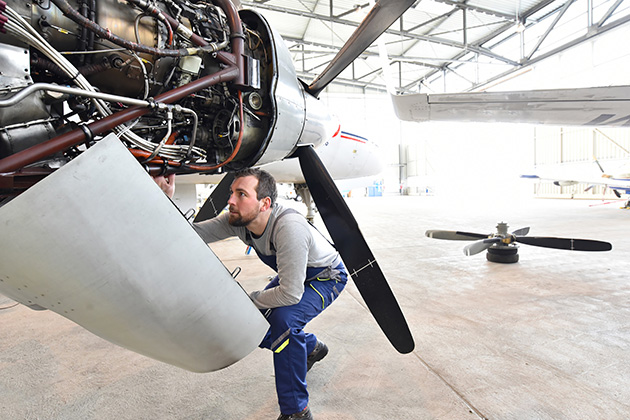
ΧΑΡΑΚΤΗΡΙΣΤΙΚΑ ΜΑΘΗΜΑΤΟΣ
| Διάρκεια |
2 ημέρες x 8 ώρες |
| Γλώσσα | Αγγλικά |
| Εξετάσεις | Ναι |
ΩΡΕΣ ΜΑΘΗΜΑΤΩΝ
Μετά από συνεννόηση
Προαπαιτούμενα: Οι συμμετέχοντες πρέπει να μπορούν να διαβάσουν και να κατανοήσουν αγγλικό κείμενο.
HUMAN FACTORS
IN AVIATION
MAINTENANCE
Human Factors in Aviation Maintenance
Objective
To familiarize personnel with Human Factors in Aviation Maintenance subjects in accordance with EASA Part-145 requirements. Upon completion of the course, the participant will be able to: - Understand the nature of Human Error; - Identify and predict potential maintenance Human Error; - Reduce human error working under the stress and fatigue; - Identify strategies for reducing or controlling maintenance Human Error; - Adopt a credible, non-punitive policy toward human error (not violations); - Demonstrate a commitment to taking action to reduce error-inducing conditions; - Provide training in Threat & Error Management strategies for individuals and maintenance teams; - Identify threats and deal with them before they become errors; - Assist in assessing current and proposed maintenance policies and procedures; - Conduct investigations for individuals involved mishaps or other incidents; - Develop effective risk management practices.
Target Group
This course is suitable for aviation professionals who require a practical overview of Human Factors and associated EASA regulatory requirements.
The course is also addressed to Personnel Engaged in EASA Part-145 Approved Organization activities Part-147, Part-M including Postholders, Managers, Supervisors, Certifying Staff, Technicians, Trainers, Auditors and Supporting Staff like Planners, Engineers and stores staff not excluding Pilots, flight crew.

ΧΑΡΑΚΤΗΡΙΣΤΙΚΑ ΜΑΘΗΜΑΤΟΣ
| Διάρκεια |
3 ημέρες x 8 ώρες |
| Γλώσσα | Αγγλικά |
| Εξετάσεις | Ναι |
ΩΡΕΣ ΜΑΘΗΜΑΤΩΝ
Μετά από συνεννόηση
Προαπαιτούμενα: Οι συμμετέχοντες πρέπει να μπορούν να διαβάσουν και να κατανοήσουν αγγλικό κείμενο και να τους είναι γνώριμο το αντικείμενο.
HUMAN FACTORS
IN AVIATION MAINTENANCE
(recurrent)
Human Factors in Aviation Maintenance (recurrent)
Objective
To assist in keeping current the knowledge of Human Factors training to all personnel awarded the Certificate for Human Factors Initial training.
Target Group
Personnel Engaged in EASA Part-145 Approved Organization activities Part-147, Part-M including Postholders, Managers, Supervisors, Certifying Staff, Technicians, Trainers, Auditors and Supporting Staff like Planners, Engineers and stores staff not excluding Pilots, flight crew.
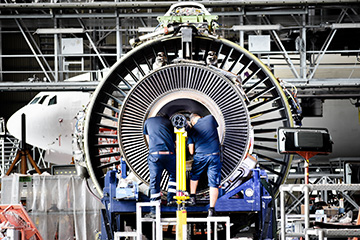
ΧΑΡΑΚΤΗΡΙΣΤΙΚΑ ΜΑΘΗΜΑΤΟΣ
| Διάρκεια |
1 ημέρα x 8 ώρες |
| Γλώσσα | Αγγλικά |
| Εξετάσεις | Ναι |
ΩΡΕΣ ΜΑΘΗΜΑΤΩΝ
Μετά από συνεννόηση
Προαπαιτούμενα: Πιστοποιητικό σε Human Factors Initial Training.
FUEL TANK
SAFETY
(LEVEL 2)
Fuel Tank Safety (Level 2)
Objective
To provide for the participant all the necessary knowledge regarding implementation and compliance with Fuel Tank Safety and Critical Design Configuration Control Limitations regulations of respective Part-M and Part-145 of EC Regulation 1321/2014 ((Appendix IV to AMC 145.A.30(e) and 145.B.10(3) ).
Target Group
This course is suitable for Part-145 Maintenance Organizations Personnel, for Training Personnel and for personnel involved with Continuous Airworthiness tasks.
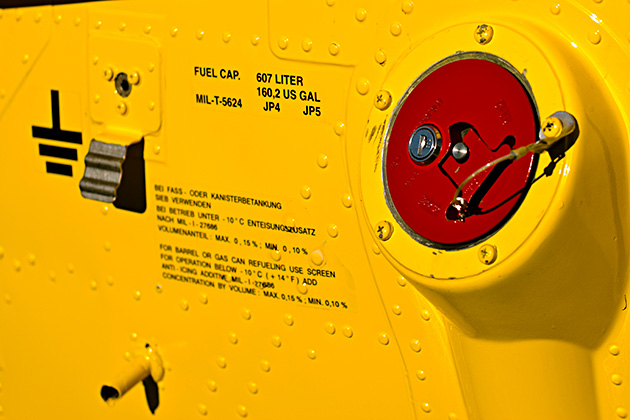
ΧΑΡΑΚΤΗΡΙΣΤΙΚΑ ΜΑΘΗΜΑΤΩΝ
| Διάρκεια |
1 ημέρα x 8 ώρες |
| Γλώσσα | Αγγλικά |
| Εξετάσεις | Ναι |
ΩΡΕΣ ΜΑΘΗΜΑΤΩΝ
Μετά από συνεννόηση
Προαπαιτούμενα: Οι συμμετέχοντες πρέπει να μπορούν να διαβάσουν και να κατανοήσουν αγγλικό κείμενο και να τους είναι γνώριμο το αντικείμενο.
ELECTRICAL WIRING INTERCONNECTION SYSTEM (EWIS)
Electrical Wiring Interconnection System (EWIS)
Objective
EWIS training program goal is to provide operators, holders of TC, holders of STC, maintenance organizations and persons performing field approval modifications or repairs a model for the development of their own EWIS training program. This will ensure that proper procedures, methods techniques, and practices are used when performing maintenance, preventive maintenance, inspection, alteration, and cleaning of EWIS.
This course also provides guidance for personnel who are not directly involved in the maintenance and inspection of EWIS.
Training personnel in these groups would greatly enhance awareness of the importance of EWIS safety in the overall safe operation of airplanes. Although these groups are not directly involved in the maintenance of EWIS, they have the potential to have an adverse impact on EWIS.
Target Group
Group 1. Qualified staff performing EWIS maintenance. Personnel who perform wiring systems maintenance and their training is based on their job description and the work being done by them (e.g. avionics skilled workers or technicians’ cat B2).
Group 2. Qualified staff performing maintenance inspections on wiring systems. Personnel who perform EWIS inspections (but not maintenance), and their training is based on their job description and the work being done by them (e.g. inspectors/technicians cat B2).
Group 3. Qualified staff performing electrical /avionic engineering on in-service airplane. Those who are authorized to design EWIS installations, modifications and repairs (e.g. electric/avionic engineers).
Group 4. Qualified staff performing general maintenance /inspections not involving wire maintenance (LRU change is not considered wire maintenance). Personnel who perform maintenance on airplane that may require removal/reconnection of electrical connective devices (e.g. inspectors/technicians cat A or B1).
Group 5. Qualified staff performing other engineering or planning work on in-service airplane. Those who are authorised to design mechanical/structure systems installations, modifications and repairs, or personnel who are authorised to plan maintenance tasks.
Group 6. Other service staff with duties in proximity to EWIS. Personnel whose duties would bring them into contact/view of aeroplane wiring systems. This would include, but not be limited to: Aeroplane cleaners, cargo loaders, fuelers, lavatory servicing personnel, de-icing personnel, push back personnel.
Group 7. Flight Deck Crew. (E.g. Pilots, Flight Engineers).
Group 8. Cabin Crew

ΧΑΡΑΚΤΗΡΙΣΤΙΚΑ ΜΑΘΗΜΑΤΟΣ
| Διάρκεια |
3 ημέρες x 8 ώρες |
| Γλώσσα | Αγγλικά |
| Εξετάσεις | Ναι |
ΩΡΕΣ ΜΑΘΗΜΑΤΩΝ
Μετά από συνεννόηση
Προαπαιτούμενα: Οι συμμετέχοντες πρέπει να μπορούν να διαβάσουν και να κατανοήσουν αγγλικό κείμενο και να τους είναι γνώριμο το αντικείμενο.
PROFESSIONAL
SKILLS
FOR INSTRUCTORS
Professional Skills for Instructors
Objective
To provide the knowledge for training personnel in developing skills, methods and techniques to deliver and optimize training courses and presentations.
To assist in locating key points for planning and presenting teaching material, as well as to improve their communication ability in providing feedback to students.
Target Group
This course is suitable for Personnel assigned instructor’s duties in Part-147 Organization’s and Part-M and Part-145 Maintenance Organizations Personnel assigned instructor’s duties.
ΧΑΡΑΚΤΗΡΙΣΤΙΚΑ ΜΑΘΗΜΑΤΟΣ
| Διάρκεια |
3 ημέρες x 8 ώρες |
| Γλώσσα | Αγγλικά |
| Εξετάσεις | Ναι |
ΩΡΕΣ ΜΑΘΗΜΑΤΩΝ
Μετά από συνεννόηση
Προαπαιτούμενα: Οι συμμετέχοντες πρέπει να μπορούν να διαβάσουν και να κατανοήσουν αγγλικό κείμενο και να τους είναι γνώριμο το αντικείμενο.
EASA
AVIATION LEGISLATION
EASA Aviation Legislation
Objective
To provide knowledge on the implementation and compliance of Current EASA Legislation Regulation to all personnel involved in Airworthiness activities.
The aim of the course is mainly to introduce the requirements and the necessity of everyone engaged in Airworthiness Operations to follow procedures and ensure that incomplete or incorrect procedures are identified in order to be resolved and prevented in future.
Target Group
This course is suitable for Part-145 Maintenance Organizations Personnel, for Training Personnel and for personnel involved with Continuous Airworthiness tasks.
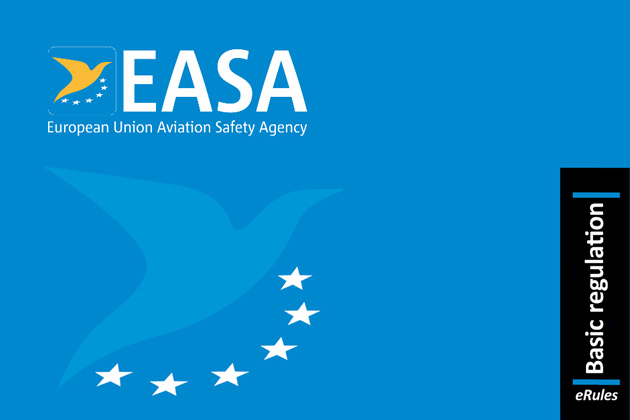
ΧΑΡΑΚΤΗΡΙΣΤΙΚΑ ΜΑΘΗΜΑΤΟΣ
| Διάρκεια |
2 ημέρες x 8 ώρες |
| Γλώσσα | Αγγλικά |
| Εξετάσεις | Ναι |
ΩΡΕΣ ΜΑΘΗΜΑΤΩΝ
Μετά από συνεννόηση
Προαπαιτούμενα: Οι συμμετέχοντες πρέπει να μπορούν να διαβάσουν και να κατανοήσουν αγγλικό κείμενο και να τους είναι γνώριμο το αντικείμενο.
SAFETY MANAGEMENT
SYSTEM (SMS)
MANAGERS & KEY PERSONNEL
Safety Management System (SMS) Managers & Key Personnel
Objective
ICAO and other regulators require all aviation organizations to implement an SMS. A Safety Management System is essential in order to manage risk and keep aircraft operations to an acceptable level of safety. In order to manage such a program an organisation requires the necessary knowledge and skills. This particular training covers the knowledge and skills necessary for the safety and quality professionals, line managers and the personnel who would work in the implementation and operation of the SMS.
The training will assist the participants to:
• Take appropriate role in the implementation of SMS within the organisation
• Apply effectively SMS-related processes and tools
• Promote SMS and Safety Culture within their area of influence
• Make decisions with appropriate considerations to safety matters
• Assist the organisation to improve safety and operational performance.
Target Group
This course is suitable for: Safety Managers, Safety Officers, Line Managers, Safety Quality Personnel, Safety Committee Members, Compliance Managers, Risk Assessors and other Nominated Key Personnel that can take a role in the Implementation of SMS.
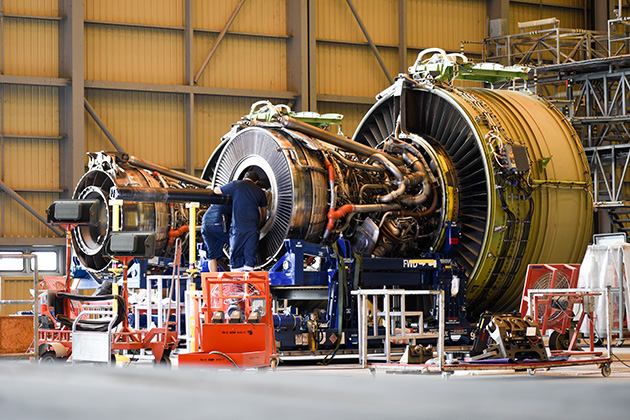
ΧΑΡΑΚΤΗΡΙΣΤΙΚΑ ΜΑΘΗΜΑΤΟΣ
| Διάρκεια |
4 days x 8 hrs |
| Γλώσσα | Αγγλικά |
| Εξετάσεις | Ναι |
ΩΡΕΣ ΜΑΘΗΜΑΤΩΝ
Μετά από συνεννόηση
Προαπαιτούμενα: Οι συμμετέχοντες πρέπει να μπορούν να διαβάσουν και να κατανοήσουν αγγλικό κείμενο και να τους είναι γνώριμο το αντικείμενο.
AUDITING AVIATION
SAFETY MANAGEMENT
SYSTEMS (SMS)
Auditing Aviation Safety Management System (SMS)
Objective
ICAO and other regulations require that all aviation organisations have a Safety Management System and consequently a process for auditing their SMS. Auditing SMS implementation requires different skills in addition to the normal auditing skills. Auditors are required to be specifically trained for these skills to be able perform audits not only for compliance but also for performance of the SMS. Specialized training has been developed to train auditors in the methodology and in its application in real life audits.
The training will assist the participants to:
• Understand the essential elements of a successful SMS audit
• Understand the methodology for assessing SMS
• Audit SMS implementation using
-
Regular auditing technique where possible
-
Special auditing techniques when necessary
• Analyze and integrate the results of the audit
• Formulate and present conclusions and recommendations to senior management
Target Group
SMS Auditors, Safety Managers, Safety Officers, Safety Quality Personnel, Safety Committee Members, Compliance Managers, Risk Assessors and other Nominated Key Personnel that can take a role in the SMS Auditing.

ΧΑΡΑΚΤΗΡΙΣΤΙΚΑ ΜΑΘΗΜΑΤΟΣ
| Διάρκεια |
3 ημέρες x 8 ώρες |
| Γλώσσα | Αγγλικά |
| Εξετάσεις | Ναι |
ΩΡΕΣ ΜΑΘΗΜΑΤΩΝ
Μετά από συνεννόηση
Προαπαιτούμενα: Οι συμμετέχοντες πρέπει να μπορούν να διαβάσουν και να κατανοήσουν αγγλικό κείμενο και να τους είναι γνώριμο το αντικείμενο.
AVIATION RISK ASSESSMENT
MANAGEMENT TRAINING
Aviation Risk Assessment Management Training
Objective
The training will assist participants to:
• Ensure company complies with regulatory requirements related to risk management for aviation
• Contribute to an improved picture of company hazards
• Improve the quality of risk assessments
• Utilize risk assessments to make safety-related and operation-related decisions
• Ensure risk assessment improves the way that the company manages safety and the effectiveness of the aviation SMS
Target Group
Safety Managers, Quality Personnel, Safety Committee Members, Compliance Managers, Risk Assessors and Other Nominated Key Personnel that can take a role in Risk Assessment.
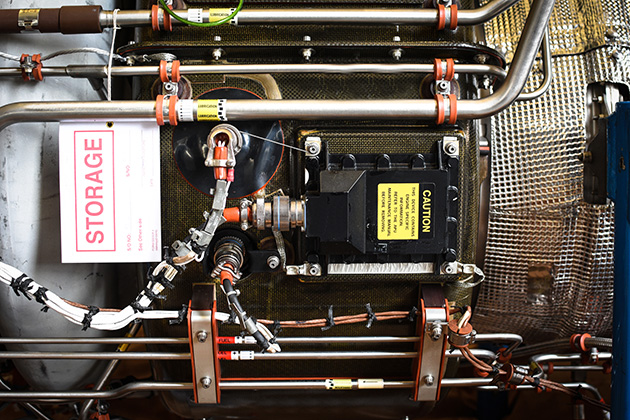
ΧΑΡΑΚΤΗΡΙΣΤΙΚΑ ΜΑΘΗΜΑΤΟΣ
| Διάρκεια |
2 μέρες x 8 ώρες |
| Γλώσσα | Αγγλικά |
| Εξέταση | Ναι |
ΩΡΕΣ ΜΑΘΗΜΑΤΩΝ
Μετά από συνεννόηση
Προαπαιτούμενα: Οι συμμετέχοντες πρέπει να μπορούν να διαβάσουν και να κατανοήσουν αγγλικό κείμενο και να τους είναι γνώριμο το αντικείμενο.
FIRE AND SMOKE
TRAINING
Fire and Smoke Training
Objective
- Emphasis on the responsibility of cabin crew to deal promptly with emergencies involving fire and smoke and, in particular, emphasis on the importance of identifying the actual source of the fire
- The importance of informing the flight crew immediately, as well as the specific actions necessary for co-ordination and assistance, when fire or smoke is discovered
- The necessity for frequent checking of potential fire-risk areas including toilets, and the associated smoke detectors
- The classification of fires and the appropriate type of extinguishing agents and procedures for particular fire situations, the techniques of application of extinguishing agents, the consequences of misapplication, and of use in a confined space
- The general procedures of ground-based emergency services at aerodromes.
Target Group
Air crew including: Captains, First officers, Flight engineers, Aircraft engineers, Cabin crew, Ground Operations staff, Personnel of Maintenance Organizations Employees of a Company’s.
Manufacturing markets include core manufacturing markets in machinery and computer equipment, chemical and allied products, fabricated metals, electronics, transportation, and measurement/controlling industries.
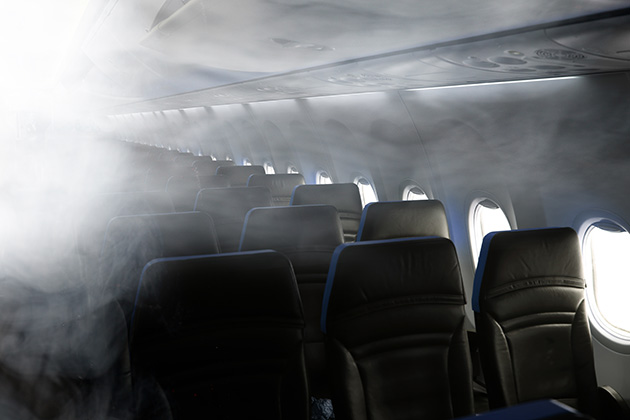
ΧΑΡΑΚΤΗΡΙΣΤΙΚΑ ΜΑΘΗΜΑΤΟΣ
| Διάρκεια |
2 μέρες x 8 ώρες |
| Γλώσσα | Αγγλικά |
| Εξέταση | Ναι |
ΩΡΕΣ ΜΑΘΗΜΑΤΩΝ
Μετά από συνεννόηση
Προαπαιτούμενα: Οι συμμετέχοντες πρέπει να μπορούν να διαβάσουν και να κατανοήσουν αγγλικό κείμενο και να τους είναι γνώριμο το αντικείμενο.
CREW RESOURCE
MANAGEMENT
Crew Resource Management
Objective
- Clear, comprehensive standard operating procedures.
- Focus on the functioning of crewmembers as teams, not as a collection of technically competent individuals. Whenever possible, pilots should be graded as a crew, rather than as an individual.
- Instruct crewmembers how to behave in ways that foster crew effectiveness
- Provide opportunities for crewmembers to practice the skills necessary to be effective team leaders and team members.
- Error Management
Target Group
Air crew including: Captains, First Officers, Flight Engineers, Aircraft Engineers, Cabin Crew, Ground Operations Staff, employees.

ΧΑΡΑΚΤΗΡΙΣΤΙΚΑ ΜΑΘΗΜΑΤΟΣ
| Διάρκεια |
3 ημέρες x 8 ώρες |
| Γλώσσα | Αγγλικά |
| Εξετάσεις | Ναι |
ΩΡΕΣ ΜΑΘΗΜΑΤΩΝ
Μετά από συνεννόηση
Προαπαιτούμενα: Οι συμμετέχοντες πρέπει να μπορούν να διαβάσουν και να κατανοήσουν αγγλικό κείμενο και, προαιρετικά, να τους είναι γνώριμο το αντικείμενο.
ENGLISH FOR AIRCRAFT
MAINTENANCE ENGINEERS
& AIR CREW
English For Aircraft Maintenance Engineers & Air Crew
Objective
To introduce the English language ‘Aircraft Maintenance Terms’ to all Licensed and Unlicensed Personnel involved with Aircraft Maintenance - Airworthiness and Aircraft Operation.
To improve the written or verbal communication between colleagues, over the phone conversation or Ground to Air Communication, Incident Reporting, Damage Description, Using Manuals, Formal Reports, Parts Identification & Ordering Speaking, Listening, Reading and Writing Improvement.
Target Group
Air crew including: Captains, First Officers, Flight Engineers, Aircraft Engineers, Post Holders, Reviewers, Auditors, Cabin Crew, Ground Operations Staff, Tarmac and Ground Handling Personnel, potential maintenance and Airworthiness Personnel. Employees of a Company.
ΧΑΡΑΚΤΗΡΙΣΤΙΚΑ ΜΑΘΗΜΑΤΟΣ
| Διάρκεια |
3 ημέρες x 8 ώρες |
| Γλώσσα | Αγγλικά |
| Εξετάσεις | Ναι |
ΩΡΕΣ ΜΑΘΗΜΑΤΩΝ
Μετά από συνεννόηση
Προαπαιτούμενα: Οι συμμετέχοντες πρέπει να μπορούν να διαβάσουν και να κατανοήσουν αγγλικό κείμενο και, προαιρετικά, να τους είναι γνώριμο το αντικείμενο.
EASA AIR OPS
(EU-965/2012)
EASA Air Ops (EU-965/2012)
Objective
EU Regulation 965/2012 has a significant impact on how National Aviation authorities (NAA) and Operators work and demonstrate their compliance with regulations.
Focused on key personnel involved in Aviation Management, Flight Operations or Aircraft Maintenance Environment and have a role in the implementation of Part OPS transition from EU OPS.
Designed to gain knowledge of the basic principles and structure of Regulation Air Operations, to understand the different types of operation and their applicability.
To familiarize AOC holders and other Operational and Concerned Personnel with a detailed understanding of EASA Part OPS Structure and Environment related to SPO with emphasis on Compliance Monitoring and AMC & GM procedures.
Target Group
This training is specifically focused on key personnel in Aviation Management
- Operators: Operations personnel from Flight OPS, Maintenance, Crew Training and Ground Ops., including Nominated Postholders, Compliance Monitoring Managers (Quality Managers) and Auditors, Safety Managers, Flight Safety Officers, Pilots, Flight Operations Officers and Cabin Crew Management
- Postholders and other key personnel, Maintenance organizations management and employees, Training Organizations management, Civil aviation and Aero-medical and Airport authorities staff, Ground Operations Personnel International organizations operations personnel.
- International Organizations operating in European aviation environment or training for this environment.

ΧΑΡΑΚΤΗΡΙΣΤΙΚΑ ΜΑΘΗΜΑΤΟΣ
| Διάρκεια |
3 ημέρες x 8 ώρες |
| Γλώσσα | Αγγλικά |
| Εξετάσεις | Ναι |
ΩΡΕΣ ΜΑΘΗΜΑΤΩΝ
Μετά από συνεννόηση
Προαπαιτούμενα: Οι συμμετέχοντες πρέπει να μπορούν να διαβάσουν και να κατανοήσουν αγγλικό κείμενο. Οι γενικές γνώσεις αεροπορίας και αεροπορικής δραστηριότητας στην Ευρώπη είναι ωφέλιμες.
